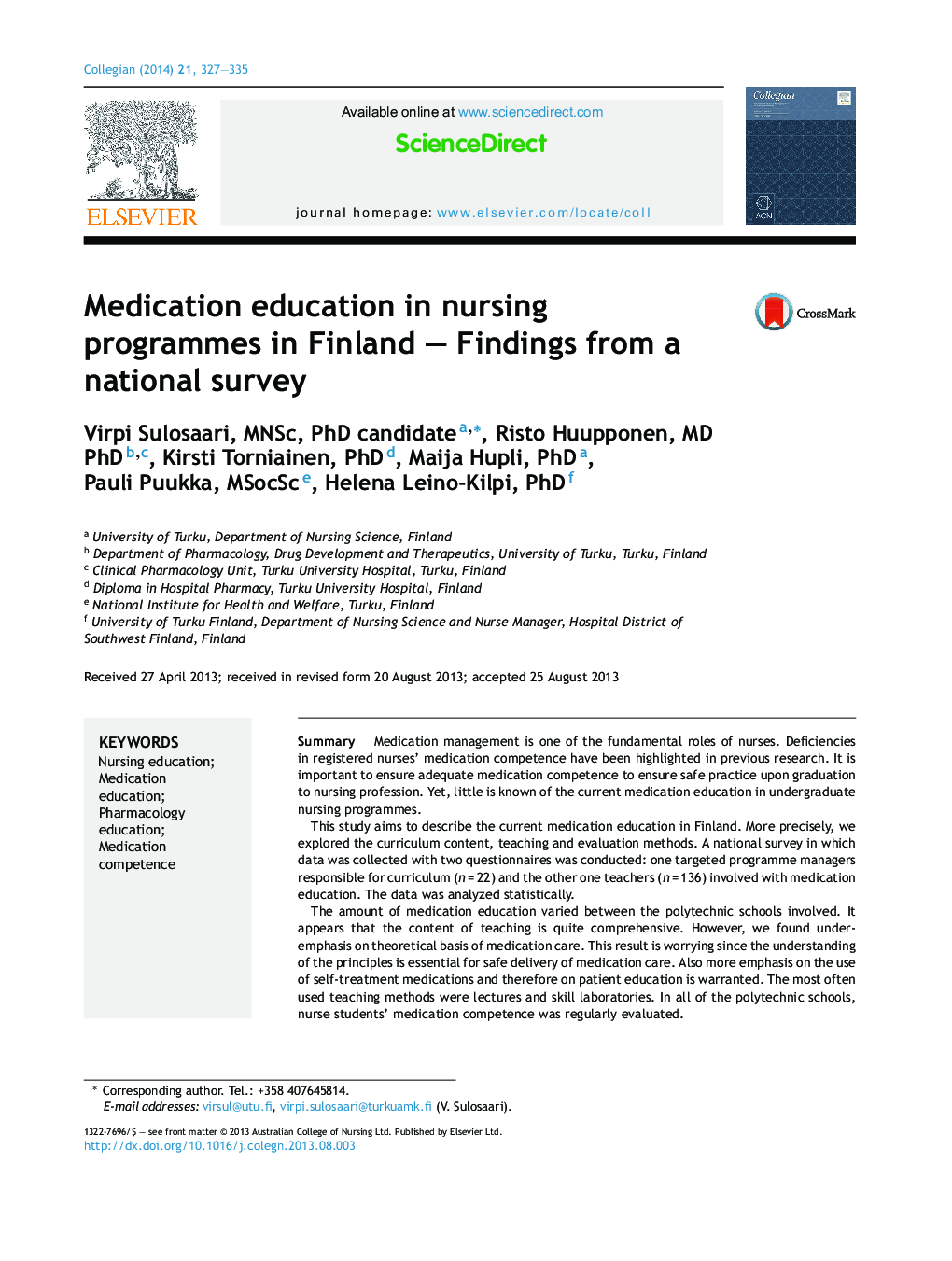| Article ID | Journal | Published Year | Pages | File Type |
|---|---|---|---|---|
| 2646820 | Collegian | 2014 | 9 Pages |
SummaryMedication management is one of the fundamental roles of nurses. Deficiencies in registered nurses’ medication competence have been highlighted in previous research. It is important to ensure adequate medication competence to ensure safe practice upon graduation to nursing profession. Yet, little is known of the current medication education in undergraduate nursing programmes.This study aims to describe the current medication education in Finland. More precisely, we explored the curriculum content, teaching and evaluation methods. A national survey in which data was collected with two questionnaires was conducted: one targeted programme managers responsible for curriculum (n = 22) and the other one teachers (n = 136) involved with medication education. The data was analyzed statistically.The amount of medication education varied between the polytechnic schools involved. It appears that the content of teaching is quite comprehensive. However, we found under-emphasis on theoretical basis of medication care. This result is worrying since the understanding of the principles is essential for safe delivery of medication care. Also more emphasis on the use of self-treatment medications and therefore on patient education is warranted. The most often used teaching methods were lectures and skill laboratories. In all of the polytechnic schools, nurse students’ medication competence was regularly evaluated.Based on previous research, there is scope for educational initiatives to improve nurse students’ medication competence. Therefore, it is important to develop medication education to ensure that medication education with relevant content and with contemporary and evidence-based methods is provided during nurses’ basic education.
